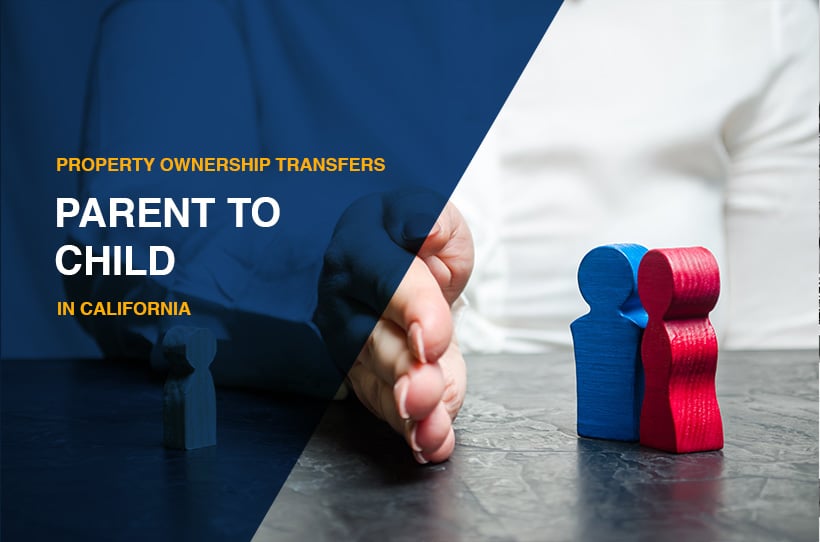Transferring ownership of property from parent to child in California is a nuanced process, shaped by evolving legislation and essential documentation such as the Preliminary Change of Ownership Report (PCOR). With the interplay of Propositions 58, 193, and the more recent 19, understanding the legal landscape is pivotal for individuals seeking to navigate familial property transfers. This article delves into the implications of these propositions and the significance of accurately completing a PCOR, guiding you through the intricacies of property transfer in the Golden State.
Historical Context: Propositions 58 and 193
Propositions 58 and 193 once stood as cornerstones for parent-child and grandparent-grandchild property transfers in California. These propositions allowed for exclusions from reassessment, thereby providing significant tax benefits to families. Proposition 58, enacted in 1986, permitted parents and children to transfer property and maintain the existing property tax assessment. Similarly, Proposition 193 extended these benefits to grandparent-grandchild transfers, under specific conditions.
However, the landscape shifted with the advent of Proposition 19, which was passed by voters in November 2020. This new legislation repealed the exclusions provided by Propositions 58 and 193, rendering them inoperative as of February 16, 2021. The impact of this change is profound, affecting both property owners and potential transferees, as the exclusions are only effective for transfers that occurred on or before February 15, 2021.
For those seeking a deeper understanding of property tax exclusions, we offer a comprehensive guide on Proposition 13 exclusions available for download here.
Current Landscape: Proposition 19 and Its Implications
Proposition 19, the game-changer in California's property transfer landscape, brought forth significant alterations to the rules governing parent-child and grandparent-grandchild property transfers. Under this proposition, the previous exclusions from reassessment provided by Propositions 58 and 193 were repealed, establishing new conditions for property tax reassessment exclusions.
The current landscape under Proposition 19 allows for the transfer of a primary residence between parents and children, or between grandparents and grandchildren if the parents are deceased, without reassessment. However, this exclusion is subject to certain conditions, including the requirement that the property continues to be used as a primary residence by the transferee.
Navigating the intricacies of Proposition 19 and understanding its implications is crucial for families considering transferring ownership of property. The changes brought about by this legislation underscore the importance of staying informed and adhering to the legal requirements to ensure a smooth and compliant transfer process.
For a detailed walkthrough on how to properly fill out a Preliminary Change in Ownership Report, refer to our comprehensive article here.
Understanding the Preliminary Change of Ownership Report (PCOR)
The Preliminary Change of Ownership Report (PCOR) is a pivotal document in the California property transfer process. This form is designed to gather information about the property and the parties involved, aiding assessors in determining whether a property should undergo reassessment for tax purposes. The PCOR delves into the specifics of the transaction, including the nature of the property, the relationship between the transferor and transferee, and any applicable exclusions.
Completing the PCOR accurately is essential, as it can significantly impact the property tax obligations of the new owner. The form requires detailed information, including the assessor’s parcel number, property address, transferor’s name and address, transferee’s name and address, type of transfer, and purchase price. Additionally, it inquires about any claims for reassessment exclusion, which is particularly relevant in the context of parent-child transfers.
Steps to Transfer Ownership of Property from Parent to Child
Transferring ownership of property from parent to child in California involves several meticulous steps to ensure compliance with legal requirements and a smooth transition of ownership. Here are the key steps involved:
- Determine Eligibility for Reassessment Exclusion: Assess whether the transfer qualifies for any exclusions from reassessment under Proposition 19.
- Complete Required Documentation: Prepare and complete the necessary documents, including the deed of transfer and the PCOR.
- File the Deed: Submit the deed to the County Recorder’s Office in the county where the property is located.
- Submit the PCOR: Along with the deed, file the PCOR with the County Assessor’s Office to provide information about the transfer.
- Pay Applicable Fees: Ensure payment of any recording fees, documentary transfer taxes, or other applicable fees.
- Seek Legal Advice: Given the complexity of property transfers and the potential implications, seeking legal advice is advisable to address any challenges and ensure adherence to legal norms.
Impact of Ownership Transfer on Property Taxes
When transferring ownership of property from parent to child in California, understanding the impact on property taxes is crucial. The changes introduced by Proposition 19 have implications for the property's assessed value and, consequently, the property tax obligations of the new owner. If the property continues to be used as a primary residence and meets the requirements of Proposition 19, it may qualify for exclusion from reassessment, preserving the lower property tax base.
However, if the property is not used as a primary residence or does not meet the specified conditions, it may be subject to reassessment at current market value, potentially leading to higher property taxes. Being aware of these implications and planning accordingly is essential for both the transferor and transferee to manage their financial responsibilities effectively.
Seeking Professional Guidance and Resources
Given the complexities and legal nuances of transferring property ownership in California, seeking professional guidance is highly advisable. Legal and tax professionals can provide valuable insights, address specific concerns, and assist in navigating the documentation and filing processes. They can also help assess eligibility for reassessment exclusions and advise on the potential tax implications of the transfer.
For those looking for additional resources and guidance, Paramount Property Tax Appeal offers a detailed guide on Proposition 13 exclusions, which can be downloaded here. This guide provides comprehensive information on property tax exclusions, aiding individuals in understanding the intricacies of property tax laws in California.
Conclusion
Transferring ownership of property from parent to child in California is a multifaceted process, influenced by legislative changes and requiring meticulous attention to documentation, such as the Preliminary Change of Ownership Report (PCOR). Understanding the implications of Proposition 19 and accurately completing the necessary forms are pivotal steps in ensuring a compliant and smooth transfer process.
By utilizing available resources, and seeking professional advice, individuals can navigate the complexities of property transfer, manage the impact on property taxes, and contribute to the preservation of familial wealth and property across generations.
.png)


.png?width=170&height=64&name=Logo%20320x120(2).png)





